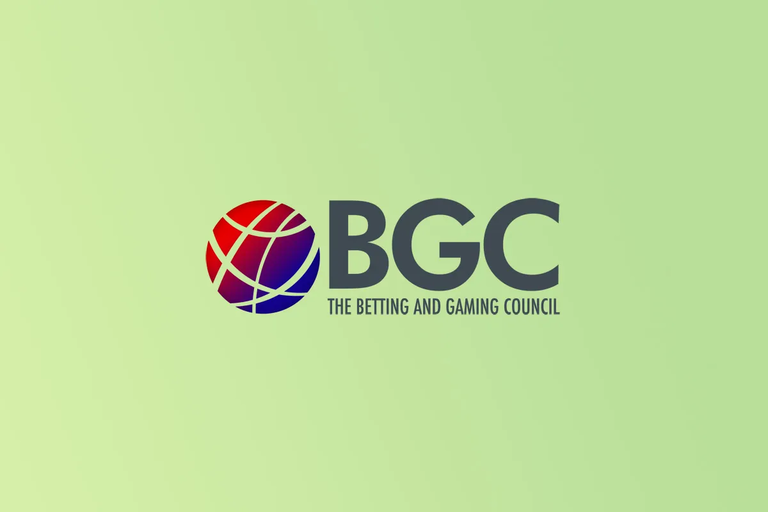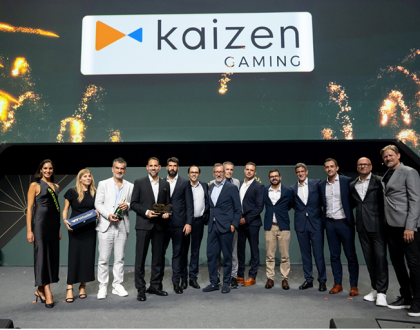BGC Latest Code of Conduct

The Betting and Gaming Council (@BGC) has unveiled a transformative set of Codes of Conduct aimed at revolutionizing #gambling related sponsorship agreements across a spectrum of major sporting organizations. This new framework is designed to significantly enhance the standards for #sports sponsorship deals, promoting a more #responsible and ethical approach to #gambling within the sports industry.
Introduction to the New Codes of Conduct
In an era where the intersection of gambling and sports has come under increasing scrutiny, the BGC's initiative stands out as a pivotal development. Partnering with esteemed national sports bodies such as the Premier League, the English Football League (EFL), The FA, the Women’s Super League, the Rugby Football League, the British Horseracing Authority, and authoritative organizations representing darts, snooker, and boxing, the BGC has meticulously crafted a cross-industry voluntary code of conduct. Each participating organization has produced a sport-specific code tailored to their unique needs and challenges.
The primary objective of this new framework is to drive up standards in gambling sponsorship by adhering to four fundamental principles: protection, social responsibility, reinvestment, and integrity. These principles are intended to ensure that gambling sponsorship contributes positively to the sports industry while maintaining high ethical standards.
The Four Key Principles of the New Code
Protection of Children and Young People
A core element of the new code is the protection of minors. The gambling sponsorship must be strategically designed to limit its reach and impact on individuals under the age of 18 and those who may be at risk of gambling-related harm. This involves crafting marketing strategies that explicitly avoid targeting young audiences and ensuring that sponsorships do not indirectly promote gambling to minors. The code emphasizes the importance of safeguarding vulnerable populations by implementing robust measures to mitigate their exposure to gambling-related content.
Social Responsibility
Social responsibility is another cornerstone of the new code. Gambling sponsorships are required to be executed in a manner that promotes social responsibility. This includes incorporating educational and awareness messages into all marketing activities. The aim is to foster a culture of responsible gambling by providing clear and accessible information about support services available to individuals who may require assistance. The code underscores the importance of promoting responsible gambling practices through proactive and transparent communication.
Reinvestment into Sport
The principle of reinvestment mandates that a substantial portion of the revenue generated from gambling sponsorship must be reinvested into sports infrastructure and community programs. This reinvestment is crucial for enhancing sports facilities, supporting grassroots initiatives, and providing opportunities for local communities to engage with sports. The code highlights the need for a balanced approach to sponsorship revenue, ensuring that financial contributions are directed towards improving the overall quality and accessibility of sports.
Maintaining Sporting Integrity
Maintaining the integrity of sporting competitions is paramount. The new code stipulates that gambling sponsorships must not compromise the fairness of sports or adversely affect the welfare of participants. This principle ensures that sponsorship deals do not interfere with the competitive nature of sports or undermine the trust of fans and athletes. The code advocates for transparency and ethical conduct in all aspects of sports sponsorship to preserve the integrity of competitive events.
Implementation and Adoption of the New Code
The adoption of the new Code of Conduct marks a significant milestone in the regulation of sports sponsorship. The EFL, Premier League, The FA, and Women’s Super League have formally committed to implementing the new standards ahead of the forthcoming season. Similarly, the British Horseracing Authority has also agreed to the new code. The BGC anticipates that additional sports bodies will announce their adoption of the code in the near future.
Specifics for Football
In the realm of football, the new code introduces several critical measures. Sponsorships must be carefully designed to prevent exposure to children and individuals at risk of gambling-related harm. The code also requires that professional footballers are made aware of available support services and that club social media accounts refrain from including links to betting operator websites. Furthermore, football clubs are required to allocate a reasonable portion of gambling sponsorship assets to promote safer gambling messages. This could involve the use of perimeter boards, matchday programs, and other advertising mediums to raise awareness about responsible gambling practices.
Specifics for Horseracing
For horseracing, the new code mandates that betting promotions must not be directly targeted at individuals under the age of 18. Additionally, appropriate age-awareness measures must be implemented at racecourses to prevent young people from being exposed to gambling advertisements. These measures are designed to ensure that betting promotions are presented in a manner that respects age restrictions and promotes responsible gambling.
The BGC’s Commitment to Social Responsibility
The BGC’s new code is part of a broader commitment to promoting social responsibility within the gambling industry. The BGC has previously implemented several initiatives aimed at enhancing industry standards. For example, the removal of betting operators’ logos from children’s clothing, such as replica football kits, reflects the BGC’s commitment to protecting young audiences from excessive gambling exposure. Additionally, the whistle-to-whistle ban, which significantly reduces the number of betting commercials viewed by children during live sports before the watershed, demonstrates the BGC’s dedication to minimizing gambling-related advertising targeting minors.
Michael Dugher, Chair of the BGC, expressed his support for the new codes, stating, “I welcome the publication of these landmark codes that BGC has led on, which set new standards for sports. These new measures are beneficial for sport, BGC members, and fans alike.” Dugher highlighted the importance of these measures in ensuring that gambling sponsorship aligns with the principles of protection, social responsibility, reinvestment, and integrity.
Financial Contributions and Industry Impact
The regulated betting and gaming industry plays a crucial role in supporting various sports and contributing to the economy. BGC members provide essential funding to a wide range of sports, from grassroots to elite levels. For instance, the English Football League, sponsored by Sky Bet, receives £40 million in support, while the Scottish Professional Football League is backed by William Hill. Other BGC members, including Betway and Kindred, contribute to the funding of football and other sports.
Horseracing benefits from £350 million in sponsorship, and sports such as snooker, darts, and rugby league collectively receive over £12.5 million in support. The BGC’s Pitching In initiative, sponsored by Entain, provides crucial funding for grassroots football through its sponsorship of the Trident League, which encompasses 250 clubs in the lower tiers of the English football pyramid. Flutter has also invested millions into community sports through its Cash4Clubs scheme, further demonstrating the BGC’s commitment to supporting sports at all levels.
The regulated betting and gaming industry in the UK is a significant contributor to the economy, supporting 110,000 jobs and generating £4.2 billion in tax revenue. The industry contributes £7.1 billion to the economy, reflecting its substantial economic impact. Approximately 22.5 million adults in Britain engage in betting activities each month, with the most recent NHS Health Survey for England estimating that 0.4 percent of the adult population are problem gamblers.
Conclusion
The Betting and Gaming Council’s new Codes of Conduct represent a significant advancement in the regulation of gambling sponsorship in sports. By establishing rigorous standards for protection, social responsibility, reinvestment, and integrity, the BGC aims to foster a safer and more responsible betting environment. This initiative reflects a broader commitment to enhancing the industry’s ethical standards and ensuring that sponsorship agreements contribute positively to both sports and the communities they serve.
The introduction of these new codes is a testament to the BGC’s dedication to raising standards within the gambling industry. Through collaborative efforts with major sports bodies and a commitment to ethical practices, the BGC is working to create a more responsible and sustainable approach to sports sponsorship. As the industry continues to evolve, these new standards will play a crucial role in shaping the future of gambling sponsorship and ensuring that it aligns with the values of protection, responsibility, and integrity.
FAQs
What are the new Codes of Conduct introduced by the Betting and Gaming Council?
The new Codes of Conduct set higher standards for gambling-related sponsorship agreements in sports, focusing on protection, social responsibility, reinvestment, and integrity.
Which sports organizations are involved in implementing the new Code of Conduct?
The new code involves major sports organizations such as the Premier League, English Football League, The FA, Women’s Super League, Rugby Football League, British Horseracing Authority, and associations representing darts, snooker, and boxing.
What are the key principles of the new Code of Conduct?
The key principles are the protection of children and young people, social responsibility, reinvestment into sports, and maintaining sporting integrity.
How does the new code aim to protect children and young people?
The code ensures that gambling sponsorships are designed to minimize exposure to individuals under 18 and those at risk of gambling-related harm, avoiding marketing that targets young audiences.
What does the new code require regarding social responsibility in gambling sponsorships?
The code requires gambling sponsorships to include educational and awareness messages to promote responsible gambling and provide information on support services.
How should revenue from gambling sponsorships be used according to the new code?
Revenue from gambling sponsorships must be reinvested into sports infrastructure, community programs, and grassroots initiatives to benefit fans and local communities.
What specific measures are required for football clubs under the new code?
Football clubs must ensure that betting sponsorships do not target children or vulnerable individuals, promote safer gambling messages, and prevent links to betting operator websites on social media.
What are the requirements for horseracing sponsorships under the new code?
Horseracing sponsorships must not target individuals under 18 directly, and age-awareness measures must be implemented at racecourses to prevent young people from being exposed to gambling promotions.
How does the new code impact betting advertising during live sports?
The code includes measures such as the whistle-to-whistle ban, which has reduced the number of betting commercials viewed by children during live sports before the watershed.
What is the economic contribution of the regulated betting and gaming industry in the UK?
The regulated industry supports 110,000 jobs, generates £4.2 billion in tax revenue, and contributes £7.1 billion to the economy.
Esther
I am a professional writer with 8 years of experience in this field and I can provide you with the best-written content you can find. Education B.A. - English, George Washington University, United States, Graduated 2011.
Recommended Posts

Kaizen Gaming’s Success at SBC Awards 2024
October 4, 2024

Sportingtech Boosts Security with Continent 8
October 4, 2024

Hidden Treasures of Rome Slot by Swintt
October 4, 2024



